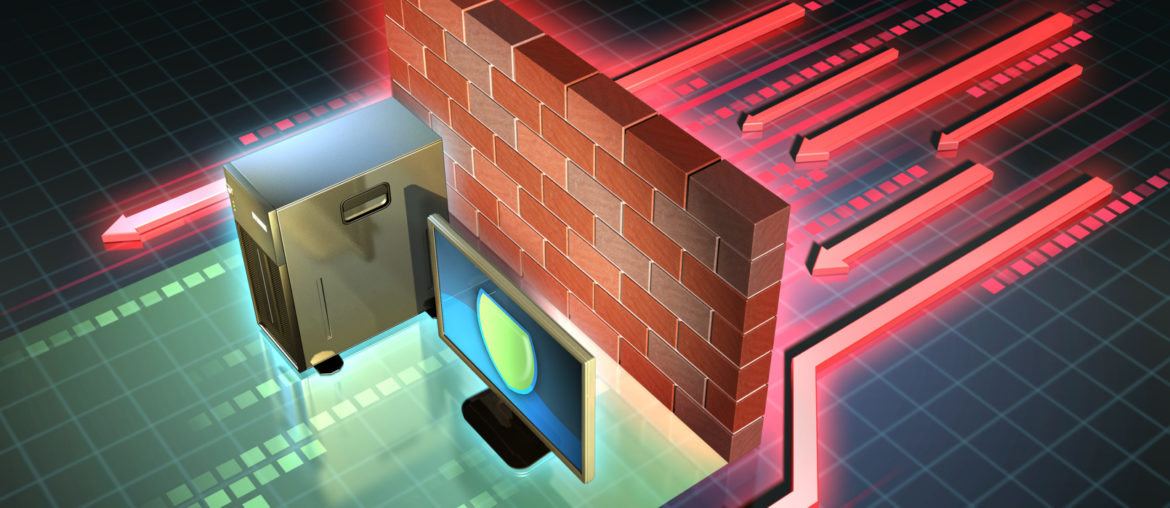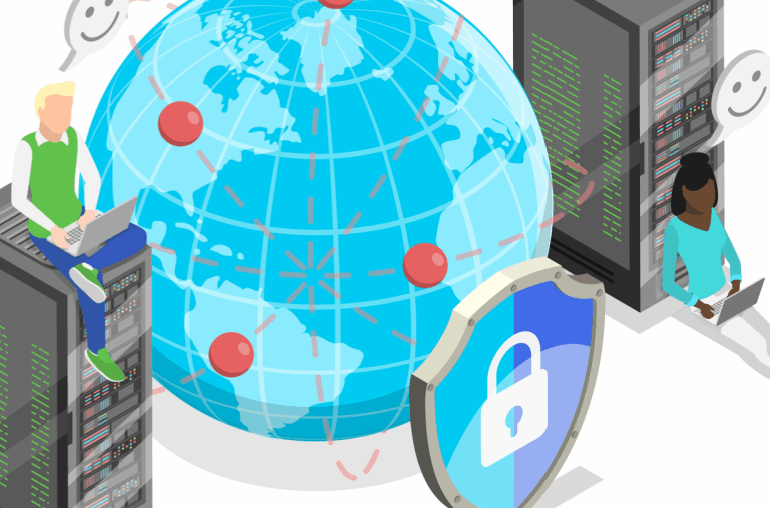What is a firewall? This is one of the best tools you can use to protect your computer from attacks.
It’s impossible to really foresee every trick and trap hiding for you on the Internet. For every insightful and useful piece of content, you will find a dozen more viruses, malware, and hackers trying to access your computer and network.
A firewall is one of the best ways to keep them out.
What is a Firewall’s Purpose?
A firewall is a system that prevents unauthorized parties from entering a private network by restricting the type of data that can enter or exit a computer system. It can block specific applications, types of connections, or even specific ports (gateways between your computer and outside systems). They can also have different settings depending on whether you’re connected to a public or private network.
The word “firewall” in the computing world derives from the architectural feature which separates rooms in such a way that it would keep a raging fire from spreading. It’s much the same with computers, in that they keep viruses, malware, and intrusive attacks from getting into your system.

How Does it Work?
Getting a better idea of what a firewall means getting a grip on how one works. The simple answer: by setting up and implementing logic rules. Combinations of variables (IP address, Protocols, Domain Names, Programs, Ports, and keywords) are flagged as permissible or non-permissible. What is and isn’t allowed in under specific circumstances is told to the firewall?
The list of what is and isn’t allowed into a system is often called an “access-control list.” It is the final arbiter of permissions used by the firewall. For example, a network administrator can indicate to block all traffic coming from a particular IP address and a certain port. This way, only trusted source addresses can pass through the firewall.
Types of Firewall
Firewalls come in both software and hardware form, called “host-based” and “network-based” firewalls, respectively. Both types protect against dangerous traffic when you are connected to a public network.
A host-based firewall is software installed on a computer. It protects just that one computer. If you’ve ever used an anti-virus program or the Windows operating system, you have encountered a host-based firewall. It sits on the “edge” of the computer’s system and the wider Internet and regulates what goes in and out.
On the other hand, a network-based firewall is a combination of hardware and software systems. It protects the whole network. This physical hardware sits between your network and gateway and protects everything on the network. Modern routers often have built-in firewall technologies.
In other words, the best practice is to use a combination of both host-based and network-based firewalls. This provides multiple layers of protection and makes it more difficult for invaders to access your data.

A Firewall’s Limitations
While they are an incredibly valuable technology, they are unfortunately not 100% secure. We discussed that firewalls work by monitoring incoming and outgoing traffic from ports and addresses. However, they cannot detect the content of the data that is entering and leaving your network, particularly if it is encrypted. Even if you configure a firewall with intricate logic to protect you from specific types of data packets, the content of “safe” packets can still have hidden harmful elements.
Also, a firewall will also not prevent a third party from monitoring your information. This means that the content that you are sharing with the World Wide Web is free to grab and traceable back to you by hackers, corporations, and governments. This is where a Virtual Private Network comes in very handy. A VPN encrypts all exchanges between you and the digital world. It will allow you to have more anonymity by hiding your IP address and preventing third parties from stealing your data.
Both VPNs and firewalls do specific tasks to protect your online activities. Neither is better than the other and using both with diligence is the safest way to interact in the digital world.
Smart Firewall Use is Good Security Hygiene
Firewalls are as old as computer networks. However, they’ve evolved over the decades into an invaluable technology, so ubiquitous that they are embedded in most modern systems. While they may come in many forms, they all can help you improve your digital security.
Download PrivadoVPN
Protect your privacy with a world-class VPN. Sign up for premium access to PrivadoVPN and get unlimited monthly data, access to 300+ servers from around the world, and up to 10 simultaneous connections. Get a top-rated VPN that can secure your privacy at home, at work, or on the go.
Sign up for PrivadoVPN today!




